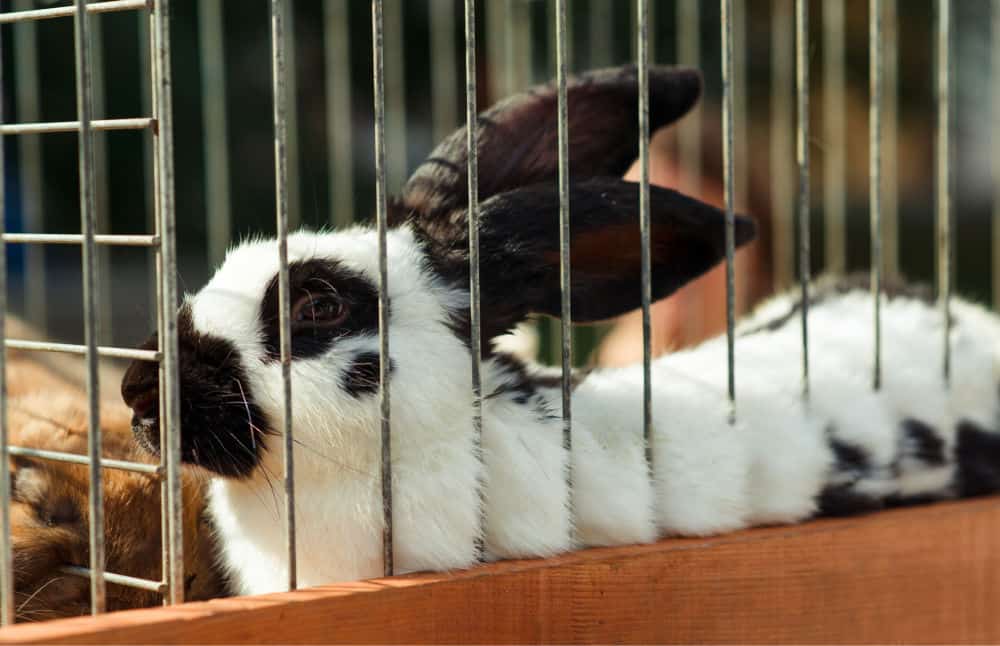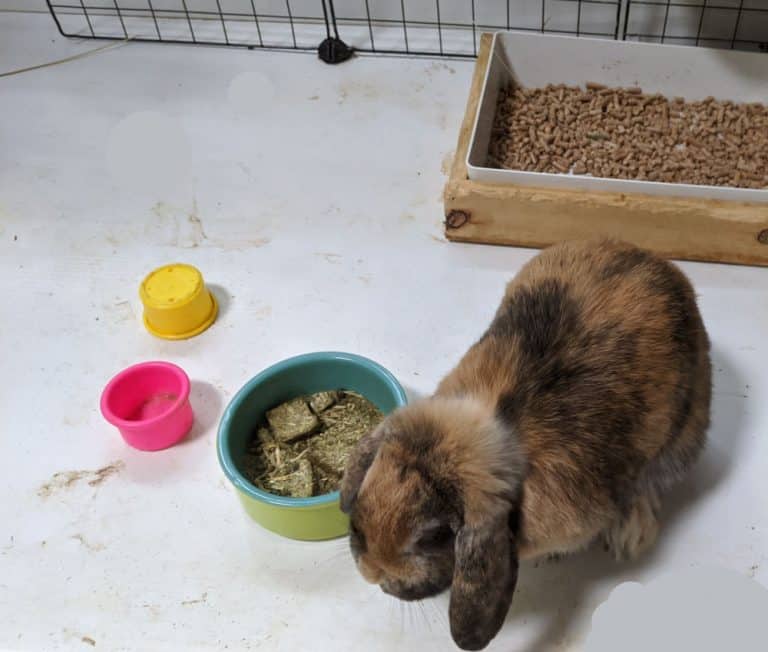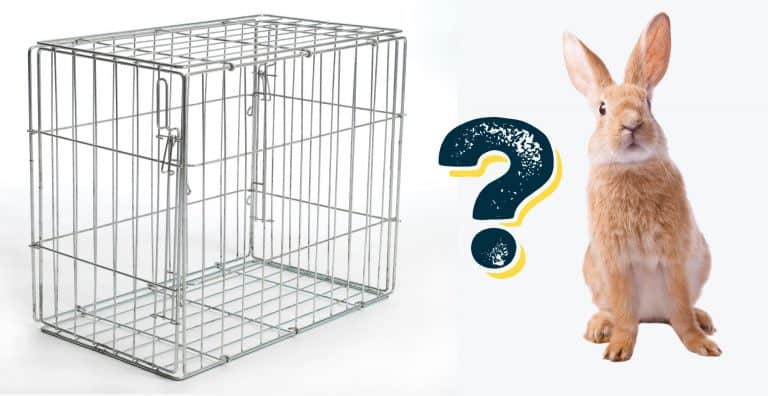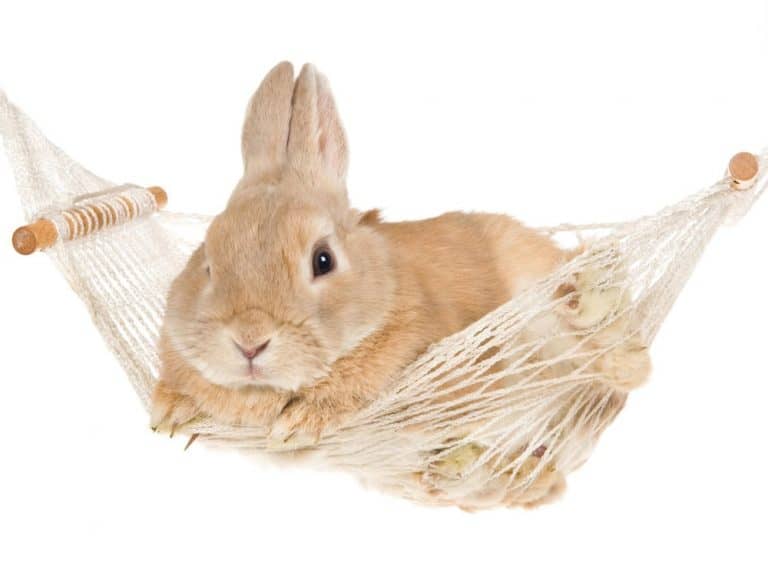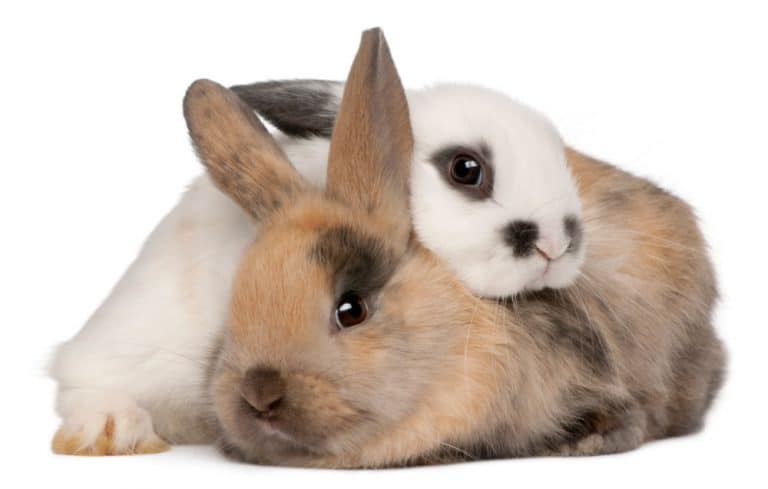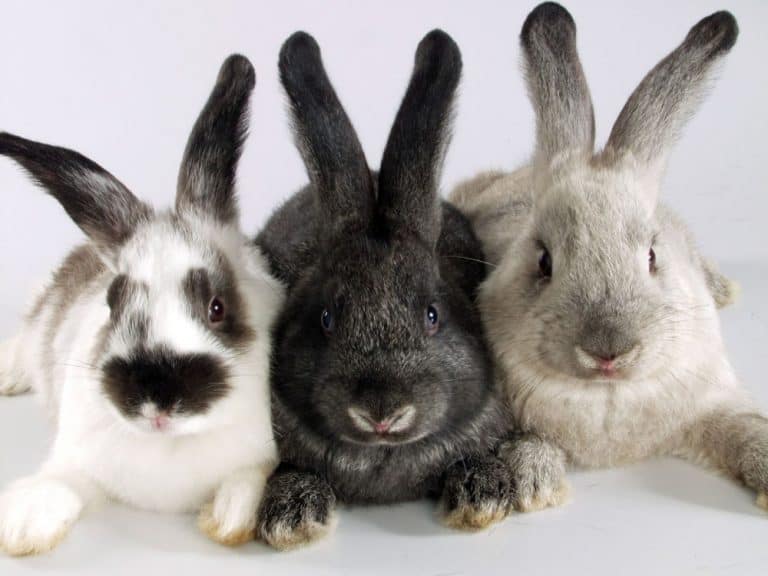Do Rabbits Smell Bad: Everything You Need To Know About Rabbit Odor
If you’re thinking of getting a rabbit, the odor of the hutch may concern you. If you’re planning to keep your rabbit inside your home, you’ll be more worried about the smell.
This article will help you decide whether a rabbit is the right pet for you. We’ll help answer the question: Do rabbits smell bad and give you tips about how to freshen up your rabbit’s enclosure.
Do rabbits smell bad?
The good news is, no, rabbits do not smell bad. Rabbits are not particularly smelly animals; their droppings are small pellets that don’t have any odor. Any odor that you may smell is likely to be caused by urine. Being diligent about regularly clean out your rabbit’s enclosure will ensure that your rabbit does not smell. Rabbits only smell bad when kept in unhygienic conditions or if they are sick.
Hutches left for too long between cleans are likely to smell bad; this is because there will be urine-soaked newspapers or other bedding. When hay is soaked and gets hot, it starts to rot and smells bad. Therefore, you should always ensure that clean hay or straw is available for your rabbit and that the enclosure is cleaned out regularly.
How Do You Keep a Rabbit Cage from Smelling Bad?
Some people think that rabbits smell bad, but this isn’t usually the case. Rabbits only smell bad if they are sick or if they are kept in unhygienic conditions. There are many things that you can do to keep your rabbit hutch smelling clean and fresh.
You may choose an enclosure for your rabbit made from metal and plastic rather than a wooden hutch. A plastic cage is easier to keep clean, but you should make sure the plastic is not exposed so that your rabbit can’t chew at it. Wooden hutches are more likely to get smelly after they’ve been lived in for a while as the wood can absorb urine.
It’s a good idea to use bedding that is absorbent, such as newspaper and hay. Putting a layer of paper in the bottom of your rabbit’s cage will help to absorb urine. Rabbits should also be provided with a litter tray as they are clean animals and will go to the toilet in one area. To help keep your rabbits cage smelling fresh, it’s a good idea to clean the litter tray daily.
You should also be aware that sometimes rabbits smell bad because they’re sick, this may be due to health problems, or they could be eating the wrong types of food. If a rabbit is fed a diet that’s high in sugar with not enough fiber, it can cause diarrhea.
How to Reduce Smells in your Rabbit Cage
It’s essential to keep your rabbit’s enclosure as clean as possible to avoid health problems developing. If you keep your rabbit inside your home, you’ll want to make sure that it doesn’t become too smelly. If you’ve recently noticed that your home has begun to smell, there are many things you can do to freshen up your rabbit’s enclosure. The following tips will help.
1. Clean out your rabbit cage regularly
Your rabbit cage should be cleaned thoroughly on a regular basis, spot cleaning daily, and a thorough cleaning once a week. You should also use natural cleaning products that won’t harm your rabbit.
2. Bedding
Put a thick layer of newspaper underneath your rabbit’s bedding as this will soak up the urine. This will need to be changed regularly. You will also want to choose the right type of bedding for your rabbit. Straw or hay is a good option as rabbits will also eat their bedding.
3. Choose the Right Hutch or Cage
There are different types of cages and hutches available. Choose one that has easy access to all areas, as this will allow you to keep it clean. You should also consider the materials used in your bunny home; smells will cling to wood more than plastic or metal.
4. Have your rabbit spayed or neutered
Getting your rabbit spayed/neutered will reduce its tendency to spray and mark. In many cases, spaying or neutering can also change the smell of your rabbit’s urine.
5. Litter Training
It’s a good idea to litter train your rabbit, especially if it’s being kept indoors. If your rabbit is only going to the toilet in a litter tray, their enclosure will be cleaner and less likely to smell.
6. Diet
If your rabbit regularly has diarrhea, UTIs, or a sticky bottom, you should look at making changes to his diet. When rabbits smell bad, this can be a sign of an underlying health problem. If you are concerned, you should get your rabbit checked out by a vet. If there is a build-up of ammonia in your rabbit hutch, this can cause health problems for your rabbit. Ammonia is a substance found in urine.
Problems Associated with a Smelly Rabbit’s Cage
If you don’t clean your rabbit cage out regularly enough or thoroughly enough, it’s likely to start smelling like rabbit urine. Ammonia can cause many health problems in rabbits, and living in a smelly enclose could cause the following:
Respiratory Problems
When a rabbit is exposed to ammonia for any length of time, breathing difficulties will result, as it slows down the rabbit’s respiration rate. Rabbits who live in ammonia-soaked bedding are likely to become lethargic and can struggle to breathe.
Urine-Soaked Fur
When a rabbit lives in a dirty cage or an enclosure that is too small or has too many rabbits, it can end up sitting in urine. A rabbit’s fur can become soaked in the urine; this is known as urine scalding and can result in flystrike.
Infections
If a rabbit is living in a dirty environment, they are more prone to infection. Urinary tract infections can be severe and even life-threatening in rabbits.
Stress and Discomfort
Rabbits are generally clean animals, and they can become distressed if they are left to live in a dirty hutch. Stress and discomfort can cause behavioral problems in rabbits, such as excessive chewing.
The best thing you can do for your pet is to regularly clean its cage to avoid any of these problems from developing. If you notice any of these problems in your rabbit, you may need to give the hutch a deep clean to reduce the smell and get rid of any bacteria which could lead to an infection.
Cleaning a Rabbit’s Cage
To eliminate odors and keep your rabbit in good health, you should completely empty and clean your rabbit’s cage once a week. You’ll also need to spot clean the litter tray and provide extra bedding as needed twice a week.
When cleaning a rabbit cage, you should remove the bedding and newspaper and throw it out. Never reuse old bedding, even if it looks clean.
Once the cage is empty, you can clean it with a mild detergent. You can use dishwashing liquid or buy a special pet-friendly cleaner online from like Amazon or Chewy or a local pet shop. Wipe down the floor and wall of the hutch and immerse any toys or other components in water. Give everything a thorough clean.
You can use a stiff brush to scrub the enclosure. Make sure that you clean the corners and remove all traces of urine. After washing, make sure that the hutch is dried by leaving it in the sun if possible. You can then spray a natural disinfectant that’s safe for rabbits on each part of the hutch and wipe it with a cloth.
Once you are happy that your bunny’s home is clean and dry, you can line the bottom with newspaper. You’ll then be able to add fresh bedding. It’s crucial not to put your rabbit enclosure back together while it’s still wet or even a bit damp as this could cause mold to grow.
Cleaning the Litter Tray
Your rabbit’s litter tray will be the cage’s smelliest area and will need to be cleaned more regularly. It’s a good idea to empty and clean the litter tray every few days. Some people clean their litter trays daily. You may have noticed that your rabbit seems to wee more during the summer. During this season, it will be necessary to change the litter daily.
First, remove the litter tray from your rabbit’s enclosure and dispose of the contents. You can then clean it using a mild detergent and warm water. You may need to fully immerse the litter tray in water and allow it to soak for a few minutes. You can then scrub the tray with a stiff brush. Leave the tray to dry and then wipe it with disinfectant.
Cleaning Products Suitable for a Rabbit Hutch
You’ll need to invest in the right cleaning products if you want to keep odor to a minimum. The cleaning products should be either natural or gentle and suitable for animals and must be strong enough to remove the ammonia.
Mild Detergent
You can use a little detergent, such as dishwashing liquid. Mix this with warm water and use it to scrub the hutch. You can also soak plastic components in soapy water.
Pet-Friendly Enzyme Washes
For deep cleaning, use a biological wash, like Nature’s Miracle for Small Animals, which you can purchase from an online retailer like Amazon or a local pet shop. These are great as the enzymes will effectively break down the pee and poop. They will also remove urine residues from your rabbit’s cage. It’s essential to choose an animal-friendly version as cleaners contain toxic chemicals. Even natural cleaners contain essential oils that can be harmful to rabbits.
White Vinegar
A more natural solution would be to mix one part white vinegar with one part water to create an effective disinfectant; this will help to dissolve the calcium residues, which can be left by urine. It also helps to control odor.
Avoid Harsh Chemicals
Don’t use cleaning products with harsh chemicals and never use bleach as it can leave a residue in your rabbits’ hutch, which is toxic. Vinegar residue won’t harm your rabbit, so it is a much better solution.
Types of Rabbit Bedding
Another great way to stop your rabbit enclosure from becoming too smelly is to choose the correct bedding. There are many different bedding types available, including paper-based bedding, which can be bought from online or from a pet shop. These are excellent as they are absorbent.
You could also use hardwood chips or pellets, just make sure that they are chemical-free. These are also very absorbent.
The other option is to use hay or straw on top of newspaper. Newspaper is absorbent, and hay is a good source of food for your rabbit and also an excellent bedding material. Hay does have a distinctive smell, which some people don’t like. If you’re looking for an odorless rabbit bedding, hay may not be ideal.
Bedding that should be avoided
Some types of bedding that suit other animals shouldn’t be used for rabbits. Some floor covers are toxic to rabbits or could even make the odor worse.
It’s not a good idea to use cat litter in your rabbit hutch. Although this would help control the odor, your rabbits may eat it and even choke on the litter. Clay-based litters should also be avoided as these can create dust, which causes respiratory problems for rabbits.
While some types of wood shavings are designed for rabbits, it’s not a good idea to use pine or cedar shavings as these can cause respiratory problems and are unlikely to control odor.
Hygiene tips
To avoid problems with rabbit odor, you should:
- make sure that your pets have enough space
- don’t keep rabbits in overcrowded conditions as this is more likely to create a smell
- buy your rabbit the biggest cage possible
If your rabbit is living in a small cage, it’s more likely to develop bad habits. Some rabbits even put off going to the toilet if they live in cramped conditions, which can cause UTI’s.
You should also ensure that there is plenty of ventilation to reduce any unpleasant smells. Keep your rabbit cage in a room with adequate ventilation, but ensure that your rabbit isn’t in a draught. Rabbits can die from being in a draught or from fluctuating temperatures.
Frequently Asked Questions
Can I bath my rabbit if he smells?
If your rabbit smells, it’s a good idea to bath him. Rabbits are generally clean animals, so they will groom themselves and keep clean as long as they haven’t been living in unhygienic environments. You should only have to bath your rabbit if it’s absolutely necessary.
For example, if your rabbit has been sitting in urine, which has caused urine scalding, this would put the rabbit at risk of flystrike, and it would be a good idea to bath the rabbit. A rabbit may need a bath if it has a filthy bottom, which could also lead to flystrike or if your rabbit is old. Rabbits that are old or have weak back legs cannot groom themselves properly and may end up with dirty or matted fur.
If you notice any of these problems, you can wash your rabbit in some warm water. You can buy shampoo from the pet shop that’s designed specifically for small animals. When cleaning your rabbit, pay particular attention to the rabbit’s legs and underside.
Don’t put your rabbit into water that’s too deep; about two inches of water is sufficient. Ensure that the water isn’t too warm and don’t splash water onto the rabbit’s face.
Once you’ve rubbed in the shampoo, rinse the rabbit using lukewarm water and a jug. You can then dry your rabbit using a microfiber towel, never use a hairdryer. You can put your rabbit outside in the sun to dry off.
Some rabbits hate being bathed and will resist. If a bath is essential, you should take your pet to a vet or specialist rabbit groomer.
Should I move my rabbit Outdoors?
If you’ve been keeping your rabbit inside and it starts to smell, you may think about moving your rabbit outdoors. Rabbits can live comfortably outside, but it’s essential to determine what has been causing the smell before moving it out. Some rabbits start to smell if they have health problems, so taking your pet to the vet would be a good idea.
It’s also important to realize that your rabbit will smell just as when living outdoors. It may be better to improve your cleaning routine. Outdoor hutches can often smell worse than indoor enclosures as they are made of wood, which can absorb urine.
You should also be aware that your rabbit may be sensitive to the cold if used to live inside. Rabbits can tolerate reasonably cold temperatures, but sudden changes in temperature can kill a rabbit. If you decide to move your rabbit outside, you should do so during the summer months so that it has time to acclimatize.
Conclusion
There are many things that you can do to reduce rabbit odor. Ensure that your rabbit’s enclosure is big enough so that it has enough space to move around and go to the toilet in a different area. Rabbits are generally clean animals which can be litter trained, so providing a litter tray is also a good solution.
You’ll also need to have an effective cleaning routine and ensure that your rabbit’s enclosure is cleaned every week. Thoroughly clean everything and empty the litter tray every two or three days.

